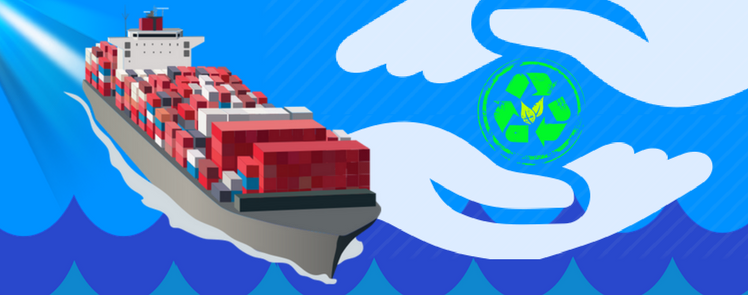
What do CNF, FOB & Ex Works mean?
If you’re buying, selling and shipping scrap plastic bales, how do you know who loads the truck, who pays the costs of shipping, and who bears the risks of getting the scrap plastic bales to their final destination? The way that recycled plastic traders know how to manage these details and understand each party’s responsibilities is to use Incoterms. Incoterms, also known as International Chamber of Commerce terms, are internationally-recognized commercial terms to help clarify the responsibilities, tasks, costs and risks of delivering commercial goods.
Basically, the Incoterms help both sides of a shipping transaction understand who is responsible for the various risks and obligations that go with executing that shipment. When both parties understand the responsibilities – such as who needs to pick up the goods, who is liable for transporting the goods, who bears the risk and cost of loading the goods, etc. – it helps ensure more efficient trade.
In the plastic recycling business, there are a few major Incoterms that are particularly common. Here is a brief overview of these Incoterms as they are used in the scrap plastic trade.
- EX Works: With EX Works shipping, the scrap plastic bales are made available at the seller’s location, and the buyer has the higher level of obligation. With Ex Works terms, the scrap plastic seller is merely expected to make the scrap plastic bales available at a designated location (outside the seller’s “works” or plant location), but the seller has very little responsibility to assist with the shipping: the seller does not load the plastic bales onto the trucks, and if the seller is involved in loading scrap plastic bales, the loading is done at the buyer’s expense. The scrap plastic buyer has to pay for the cost of transporting the scrap plastic and bears the risks of transporting the goods to the buyer’s destination. If you see a plastic scrap price quote with an EX Works term, it often means that this is just an initial “low estimate” quotation with no costs included. And if the buyer wants the seller to be involved with loading the scrap plastic bales, there needs to be additional wording included in the sales contract to make this clear.
- CFR – Cost and Freight: (formerly known as CNF or C&F) With CFR terms, the seller has a higher level of responsibility and risk than with Ex Works terms. On a CFR deal, the scrap plastic seller is expected to pay the costs of bringing the goods to the destination. cheap accommodation However, once the plastic bales have been loaded onto the truck, the buyer assumes the risk. Insurance charges are not included – those would be the buyer’s responsibility.
- FOB – Free on Board: (also known as Freight on Board) With FOB terms, the scrap plastic seller is expected to load the plastic bales onto the truck, but the cost and risk are split between the buyer and seller once the plastic bales are on board.
Scrap plastic buyers and sellers need to pay close attention to the terms that are part of every scrap plastic deal. Price of the goods is not always the only consideration – often the terms, responsibilities, risks and obligations can be almost as important in making a trade. A good scrap plastic broker can help buyers and sellers understand and implement the terms that are most favorable for their situation.




